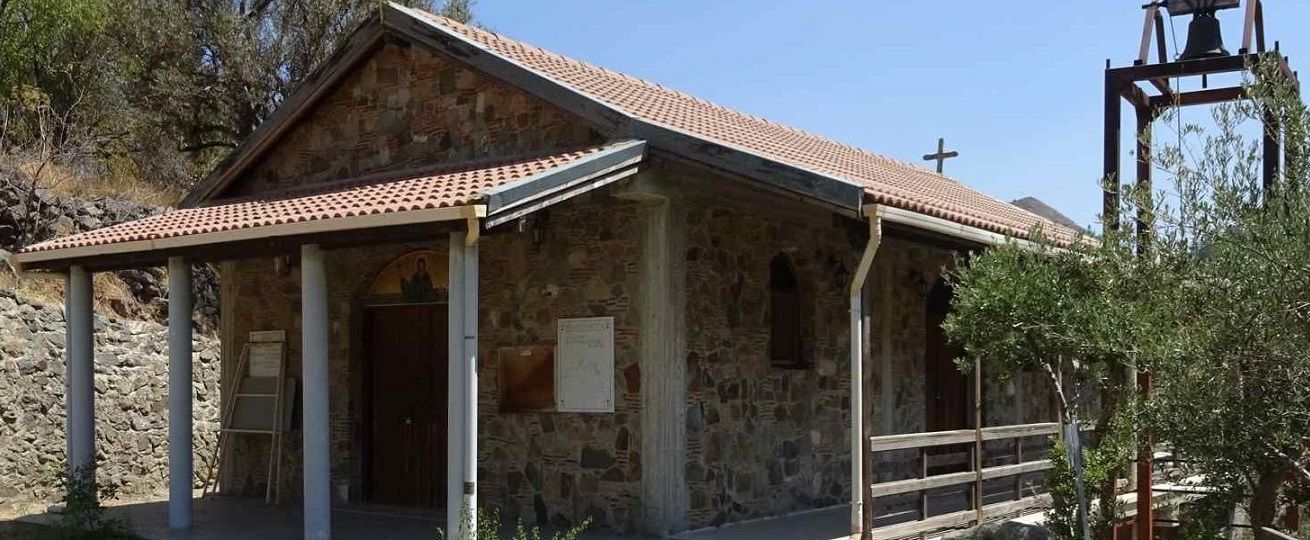The dark side of religious tourism and an extensive miracles racket operating out of the Saint Avakoum monastery in Fterikoudes were exposed on Monday, adding to the slew of scandals brought to light about goings-on at the religious site last week.
According to neighbouring Palaichori resident Sofronis Sofroniou the revelations to date are merely the tip of the iceberg and the deceptions taking place in the surrounding communities, which also drew miracle-seekers from far and wide, have a more sinister dimension.
Last week’s scandals at the monastery where two monks were allegedly found to be having sex and receiving thousands of euros in cash they claimed were donations are currently being investigated by police.
An emergency Holy Synod meeting on Friday decided that two monks embroiled in the scandal, would head to ecclesiastical court.
Speaking extensively to the state broadcaster, Sofroniou, an award-winning writer, painted a disturbing picture of happenings associated with the religious facility founded in 2020.
Since 2021, after a popular broadcast managed to convince a large proportion of the population that “something big” was happening people began swarming to the monastery looking for healing miracles, Sofroniou said.
Sofroniou described how the situation got so out-of-hand that he was daily having to guide lost visitors on their way to the site.
“I and some others felt it was necessary to begin observing the situation, especially after some outrageous incidents were brought to our attention,” Sofroniou said.
He went on to describe the case of an elderly woman who had been exhorted to donate €5,000 towards decorating the saint’s grave (under the church foundation), leaving her desperate and unable to afford her electricity bill.
Other elderly residents also proceeded to “donate” plots of land and property or money.
“After a while I decided it was necessary to speak to the police because of the severity of the situation,” Sofroniou explained.
However, when he tried, the process was extremely cumbersome and he was met with resistance.
“When I called the CID after first being grilled as to why I was even pursuing the matter and what I might stand to gain by it, I was told that the police themselves visit the monastery. When they finally seemed to grasp the gravity of the situation […] I was told it was nonetheless sanctioned by the bishopric and [the police’s] authority had its limits.”
Sofroniou described how in addition to direct extortion of material goods from the faithful, a large side-show of miracles and pilgrimages was being orchestrated by private entities with a lot of social media clout, locally, in Greece and elsewhere.
“This sideshow was being conducted by individuals with over 100,000 followers advancing the ‘religious trade’ and presenting weekly videos of supposed miracles,” Sofroniou noted.
A brief search by Cyprus Mail on social media sites Facebook and TikTok indeed reveals evidence of such videos, some now seemingly removed.
Large gatherings were held with much fanfare where the faithful were invited to venerate arrivals of the saint’s relics and his slippers, while last year in neighbouring Pano Deftera, an event to venerate the mixed relics of Avakoum and another saint proved so popular that a three-day event turned into a five-day event, certainly involving massive profit from the whole scene, Sofroniou said.
After feeling he got nowhere with the police, the writer last year requested and gained an audience with the Bishop Isaias of Tamasos himself.
“I spoke for an hour, explaining the issue and telling him what I knew. [The cleric] behaved as though he had no idea about all of this and said he’d have to go and check out the situation,” Sofroniou said.
In a related episode, Palaichori residents banded together to rid themselves of their newly assigned priest (one of the monastery monks) who also acted as treasurer, after financial abuses became evident a mere three months into his appointment.
Responsibility also belongs to large media channels which have played along, profiting from the whole scene, and encouraging people to seek miracle cures for serious medical conditions – a criminal act, Sofroniou noted.
“Since the situation has been exposed you can sense the relief, people feel freer to speak openly about it,” he said.







Click here to change your cookie preferences